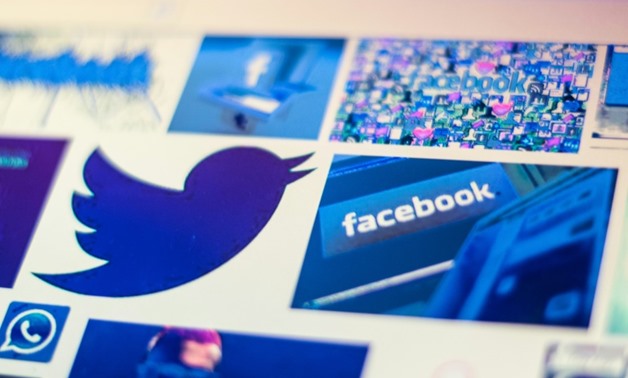
The latest crackdowns by Facebook and Twitter on fake accounts underscore the challenges for social media firms tring to remain open while curbing manipulation and foreign interference
CALIFORNIA - 23 August 2018: Facebook and Twitter unveiled fresh crackdowns on misinformation campaigns from Russia and Iran as analysts warned of more efforts to manipulate public debate ahead of the November US elections.
Facebook announced late Tuesday it removed more than 650 pages, groups and accounts identified as "networks of accounts misleading people about what they were doing," chief executive Mark Zuckerberg said.
Separately, Twitter said it suspended 284 accounts "for engaging in coordinated manipulation," adding that "it appears many of these accounts originated from Iran."
Moscow repeated its denial of any effort to manipulate social media firms. There was no immediate comment from Tehran on the crackdown.
Both social networks said they were working with law enforcement and stepping up security.
The Facebook action was prompted by research from cybersecurity firm FireEye regarding a collection of "Liberty Front Press" pages on the social network and other online services.
FireEye described the efforts were online, social media-driven influence operations as a means of shaping political discourse."
The Iranian effort appeared to be "to promote Iranian political interests, including anti-Saudi, anti-Israeli, and pro-Palestinian themes," FireEye said.
"We have observed inauthentic social media personas, masquerading as American liberals supportive of US Senator Bernie Sanders, heavily promoting Quds Day, a holiday established by Iran in 1979."
- Undeterred -
Olga Polishchuk, a threat researcher with the cybersecurity firm LookingGlass, said she expected more of the same from Russia despite this week's crackdowns.
Russia employs "an army of hackers" who are well-versed in American culture and are well-funded, Polishchuk said.
"These groups operate day and night," she said. "Their obfuscation techniques are very sophisticated."
Polishchuk said Russia's hacker army is not likely to be deterred by the shutdowns or even indictments of Russians for computer hacking.
"They are so committed to pushing the country's agenda," she said.
In Moscow, a government spokesman denied any manipulation campaign, telling journalists that "we don't understand what the basis is" for the accusations.
The actions by Facebook and Twitter come days after Microsoft said it seized websites linked to Russian intelligence that sought to meddle in US political debate.
Senator Mark Warner said the latest revelations were "further evidence that foreign adversaries are actively using social media to divide Americans and undermine our democratic institutions."
Jennifer Grygiel, a Syracuse University professor specializing in social media, also voiced fears of additional influence campaigns.
"I am deeply concerned about further abuse of these platforms," she said.
"I still do not think they have dedicated enough resources in this area."
Grygiel said she believes most social media companies failed to consider the potential for manipulation as they expanded.
"Their business models have been flawed from the beginning," she said. "They have not had enough infrastructure to deal with content moderation, and it is harmful to society and democracy."
- Repeat effort by Facebook -
For Facebook, it was the second time in less than a month that it acted against manipulation, following the shutdown in late July of 32 fake pages and accounts involved in an apparent coordinated effort to stoke hot-button issues ahead of November midterm US elections.
The social network giant said content from some of the pages shut down in the latest move was traced back to Iran, while others were tied to groups previously linked to Russian intelligence operations.
Zuckerberg cited two separate sets of campaigns, including one with ties to Iran's state-owned media and another apparently linked to Russian military intelligence services.
The accounts, some on Facebook-owned Instagram, were presented as independent news or civil society groups but were actually working in coordinated efforts, the company said.
Content posted by accounts targeted Facebook users in Britain, Latin America, the Middle East and the US, according to head of cybersecurity policy Nathaniel Gleicher.
He said the posts were still being scrutinized and their goals were unclear at this point.
Among the accounts was one from "Quest 4 Truth" claiming to be an independent Iranian media organization. It was linked to Press TV, an English-language news network affiliated with Iranian state media, Gleicher said.
The first "Liberty Front Press" accounts found were at Facebook were created in 2013 and posted primarily political content focused on the Middle East along with Britain, Latin America and the US.
Facebook also removed a set of pages and accounts linked to sources the US government previously identified as Russian military services, according to Gleicher.


Comments
Leave a Comment